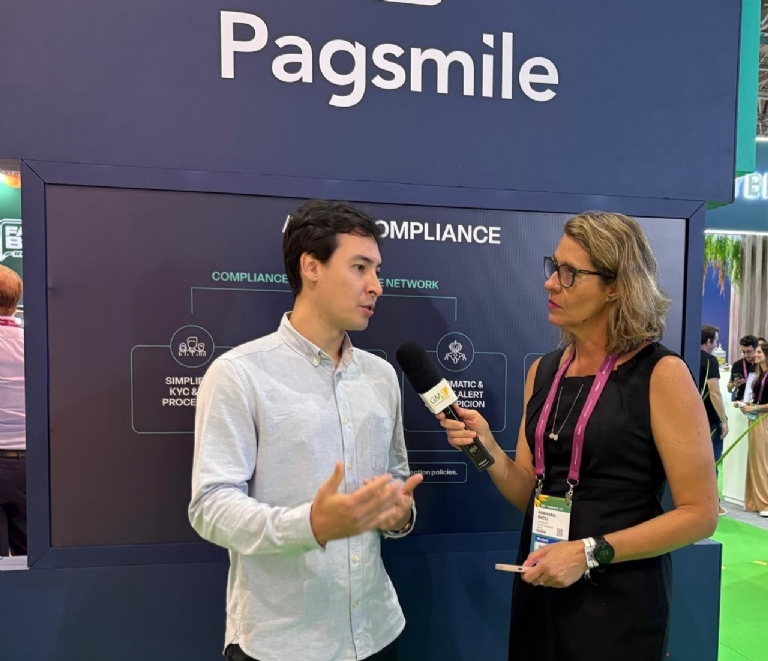

GMB - What sets PagSmile’s products apart from the competition in Brazil?
Marlon Tseng - Most people are already familiar with PagSmile. We have been serving this industry since 2016, making us one of the first payment companies dedicated to this segment. Over the years, we have refined our services to better meet the needs and behavior of end users.
We are presenting several new features here. Today, we have our own financial institution, which allows us to open accounts for operators. Additionally, we offer a banking orchestration system that enables operators to maintain accounts with different institutions through our platform.
This is crucial because if an operator relies on just one bank and it experiences instability, it can significantly impact performance and transactions. We know that users in this industry make impulsive purchases, so any instability can lead to lost sales. Our focus is precisely on ensuring transactional efficiency, high approval rates, and transaction stability.
How did PagSmile adapt to the new regulations in Brazil?
As I mentioned earlier, we had already been adapting over the years to the Central Bank’s regulations. Therefore, our compliance with the new 'Bets' regulations was a natural transition. Our process has always been aligned with anti-money laundering policies and industry best practices.
For example, we had already implemented CPF (Individual Taxpayer Identification Number) validation for paying users and ensured that payments were made to accounts linked to the same CPF. Since we were already following these best practices, the transition to the regulated market was very smooth for us.

Is PagSmile’s main differentiator as a payment gateway its versatility and integration with multiple banks?
Exactly! In addition to having our own financial institution, we can offer accounts in other institutions within our ecosystem. We have already partnered with several banks in Brazil and have completed all necessary integrations, making things much easier for operators.
If an operator had to integrate individually with each bank, it would require a huge effort in reconciliation and understanding of banking dynamics. Our solution centralizes all of this. We offer everything from account opening to an automatic routing system to ensure stability and a high conversion rate in transactions.
What are the biggest challenges for payment processors in Brazil today?
The market is highly competitive, and one of the biggest challenges is the sharp reduction in service pricing. Many times, operators fail to recognize the added value and end up choosing services based solely on price.
Our challenge is to demonstrate the advantages we bring: high approval rates, stability, transaction security, and strong compliance practices. We have worked with major industry players for years and understand the importance of ensuring a safe and efficient operation.
With Pix revolutionizing the payment market, do you think there is still room for more innovations?
Absolutely! The Central Bank has an extensive roadmap for Pix. One of the upcoming innovations is recurring Pix, which will allow operators to create subscription-like recurring payment programs.
We are always monitoring these innovations to bring the most advanced solutions to our clients as soon as they are implemented.

What are the biggest opportunities in Brazil’s regulated market for the company?
A regulated market establishes clear rules, eliminating unfair competition. In the past, without regulation, some operators failed to follow best practices, leading to fraud and security risks for users. This created a negative perception of the industry.
Now, with regulation, we can bring more credibility to the sector, ensuring a clean and secure operation. We also see a positive economic impact, with job creation and the development of professionals for this market.
How do you see the future of iGaming and sports betting in Brazil?
With proper regulation and serious government oversight, I see tremendous growth potential. There are expansion projects in discussion, including the possibility of physical gaming venues, which could further boost the sector.
Brazil has enormous tourism potential, and the development of casino resorts, for example, could attract significant investments. Models like those in Macau and Las Vegas, with attractions such as Cirque du Soleil, show how this type of infrastructure can generate jobs and stimulate the economy.
If this scenario materializes, Brazil could become a major hub for the industry, bringing benefits to various sectors of the economy.
Source: Exclusive GMB